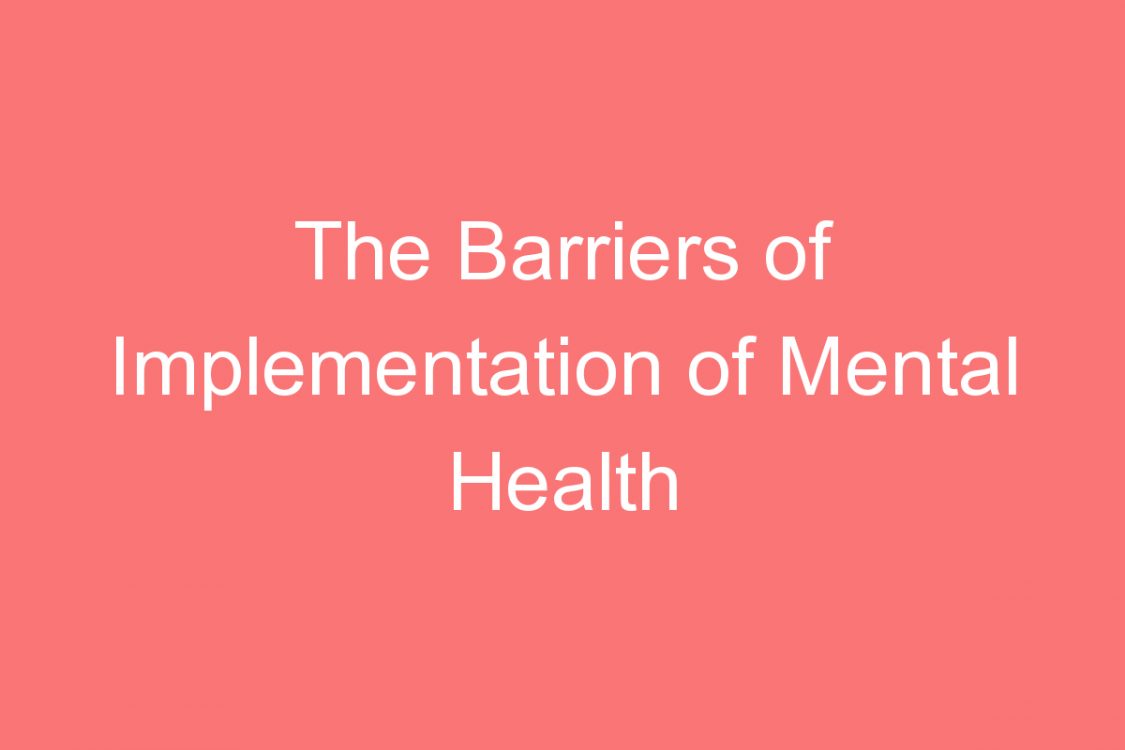India is a country where only 1.3% of the total GDP is allocated as health budget. In that health budget, only 0.3% is spent on mental health. This is a second barrier that health field faces. For that general taxation system in UK can be adopted and sin taxes can be adopted. At least 10 percentage of the GDP must be allocated to health field and out of that 10%, at least 2% must be allocated for mental health.
Lack of awareness about mental illness and mental health and eradicate stigma, prejudices and discrimination are another barriers in the Indian society. Communities must be made aware about mental illness and mental health to eradicate stigma, prejudices and discrimination from all the levels of the society using mass media campaigns, street plays etc.
Lack of good quality educational institutions that provide mental health related courses and produce mental health professional are another barrier in India. There should be good educational institutions in India. For that private – public partnership system with clear set instructions can be utilized.
According to a study conducted by the National Commission on Macroeconomics and Health in 2005, nearly 5% of India’s population suffers from common mental disorders, such as depression and anxiety. However there a number of challenges in mental health care in India.
Lack of information and data for policy development must be gathered from the grass root levels. Lack of a team or a committe constitute upon , different stakeholders including the people with mental illness, their care givers, representative of the NGO’s that work in the mental health field, mental health professionals, organizations that aims for social advocacy. The larger cultural diversity in India. Lack of number of professionals and trained staff.
The geographical obstacles in India’s rural areas, lack of funds, lack of human right friendly mental services with a successful monitoring mechanism, cultural and social barriers such as caste, class, gender etc. Lack of community based mental health services. Lack of awareness about mental illness and mental health. Lack of good quality educational institutions that provide mental health related courses and produce mental health professionals.
A severe shortage of mental health professionals – In reality there are only about 4,000 psychiatrists, 1,000 psychologists and 3,000 social workers for the whole of the country. So that one psychiatrist for four lakh Indians. A shortage of mental health facilities in India – India has 43 mental hospital and 381 medical colleges. Migration of mental health professionals from India to other countries – There are more Indian psychiatrists in the US and the UK than in India. These are some of the challenged faced by the mental health care field in India.

